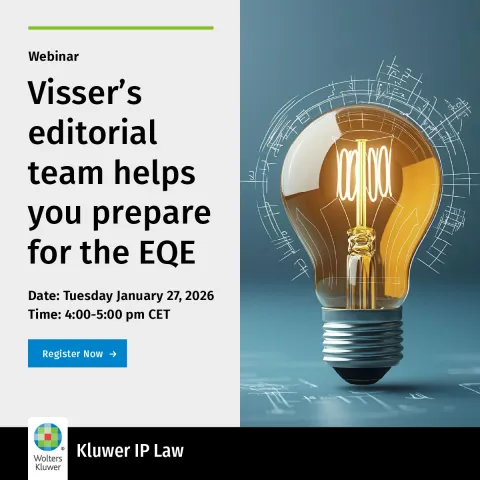In the aftermath of G 1/21: The Future of Video Proceedings in the EPO
November 1, 2021
The Enlarged Board of Appeal has now issued its long-awaited full decision in case G 1/21. Readers can access it here. The decision deserves a few comments.
The Enlarged Board's advance publication of the order of the decision in July was viewed by many as a sort of cliffhanger. This was because the question answered by the Board was not a particularly controversial one. Even the overwhelming majority of the opponents of video proceedings agreed that special measures may be necessary during a pandemic. The big question always was what would happen when the pandemic has finally come to an end. The order did not answer this question, and the EBA's spokespersons even raised the tension further by explicitly stating what the EBA's order does not address:
Accordingly, in its order the Enlarged Board did not address the question whether oral proceedings by videoconference may be held without the consent of the parties in the absence of a period of general emergency. Nor did the order address the question whether oral proceedings by videoconference may be held without the consent of the parties in examination or opposition proceedings before the EPO's departments of first instance.
Cliffhangers are well known as literary devices in several medieval works and are routinely used in modern TV series. In One Thousand and One Nights Scheherazade narrated a series of stories to her King for 1,001 nights, with each night ending on a cliffhanger in order to save herself from execution. Before this background, I am relieved to report that the EBA's full decision does not end with a further cliffhanger, but indeed sheds some light on the critical questions.
The EBA first turned to the referral question, finding it both too general and too specific. Too general for two reasons: Firstly, the case at stake was an appeal case, so the EBA concluded they had no need to also rule on oral proceedings before Opposition and Examination Divisions. Secondly, the case at stake clearly was a case during a pandemic where the referring Board only had the choice to hold oral proceedings by videoconference, or not at all (i.e. postponing the oral proceedings). The EBA thought that the situation after the end of the pandemic will be quite different, so there was no need to issue an "order" addressing this situation. Nonetheless, the EBA's reasons allow, at least in my opinion, solid conclusions for both scenarios. The EBA also found the referral question too narrow, because it only focussed on Art. 116 EPC, whereas the EBA (and many of the amici curiae) thought that Art. 113 EPC also deserves a discussion. The EBA therefore reformulated the referral question by expanding it to all provisions of the EPC.
Having stated that, the EBA's opinion can perhaps be summarized in five sentences as follows:
1. Video proceedings are oral proceedings within the meaning of Art. 116 EPC.
2. Video proceedings are currently not yet equivalent to in-person oral proceedings.
3. In-person oral proceedings are for now the optimum format (the "gold standard").
4. Nonetheless, this does not mean that the right to be heard or the right to fair proceedings cannot be respected when oral proceedings are held by videoconference.
5. Parties have the right to choose the format of the oral proceedings.
The EBA concludes the following from the above:
45. The Enlarged Board holds that the parties have a fundamental right to oral proceedings that provide them with the opportunity to be heard in accordance with Article 113 EPC and Article 6 ECHR. Without doubt, in-person oral proceedings provide such an opportunity. As stated earlier, a hearing in person is the optimum format or, to use a term well known in the field of European patent law, it is the gold standard. It definitely fulfils the requirements of Article 113 EPC and Article 6 ECHR. It is also the format that the legislator had in mind when drafting Article 116 EPC. Therefore, in-person hearings should be the default option. Parties can only be denied this option for good reasons.
The EBA is also perfectly clear that EPO-internal administrative reasons do not qualify as such "good reasons":
49. Secondly, there must also be circumstances specific to the case that justify the decision not to hold the oral proceedings in person. These circumstances should relate to limitations and impairments affecting the parties’ ability to attend oral proceedings in person at the premises of the EPO. In the case of a pandemic, such circumstances could be general travel restrictions or disruptions of travel possibilities, quarantine obligations, access restrictions at the EPO premises, and other health-related measures aimed at preventing the spread of the disease.This decision should not be influenced by administrative issues such as the availability of conference rooms and interpretation facilities or intended efficiency gains. It is the EPO’s responsibility to make available the necessary resources for facilitating the conduct of proceedings provided for in the EPC.
I must admit that I admire the EBA's decision for this paragraph in particular. It has been a while since I last read a communication from an organ of the EPO that concedes certain rights to the parties and imposes certain obligations on the EPO management.
What will happen next?
While predictions are notoriously difficult to the extent they concern the future, I venture assuming that the Boards of Appeal will return to in-person oral proceedings as the rule after the pandemic. The EBA's reasons are persuasive. Besides, many Boards have already resumed summoning the parties to in-person oral proceedings even before G1/21 came out.
This does of course not preclude oral proceedings by videoconference or hybrid proceedings at the request or with the consent of the parties. Volenti non fit iniuria.
The most interesting question will likely be what the EPO will do with first instance proceedings after the end of the pandemic. This remains to be seen. I am pretty convinced that the EPO management were planning to establish video proceedings as the "new normal" after Corona. The Enlarged Board's order does not explicitly prohibit this, yet the reasons of the decisions are clear and general enough to allow for the conclusion that they likewise apply to first instance proceedings. Besides, there is no basis anywhere in Art. 116 or Art. 113 EPC that would support a distinction between first instance and appeal proceedings, and the ECHR should apply to all EPO proceedings as a matter of course. For each of these reasons, a "new normal" including oral proceedings by video conference even against the will of one of the parties does not appear to me as compatible with the reasoning of G 1/21.
And if oral proceedings by videoconference are so great and have convinced so many reticent users in the recent past, as the EPO has claimed in one of its communications, oral proceedings by videoconference may still have a great future, because parties will actively ask for them. This might be the best of all worlds.
You may also like















Max Drei
I guess we shall never know, but I will continue to wonder what part the external judge members of the EBA played, in the deliberations of the Board which were the foundation of this Decision. What a pity there are no such external members of the EPO's Administrative Council, the employer of the EPO's President and his management team.
DXThomas
Dear Thorsten, Thanks for your clear and thorough analysis of G 1/21. You come to the a similar conclusion as I do in my comments on LinkedIn. I would add the following: The EPO is a service organisation which is actually paid by its users. And within the EPC and G 1/21 there is no room for mandatory OP by ViCo in first instance as default setting outside the pandemic. That conclusions for the first instance will have to be drawn following G 1/21 is manifest. The president’s representatives insisted heavily during the OP in July that the answer to the question referred will have an effect for the whole office and not just for the BA. It is now for EPO’s management to act accordingly to what it has claimed during the OP. The choice of the format of OP should be left to the parties. The default setting outside the pandemic is in-person OP. This applies as well to OP in first instance or before the BA as Art 116 does not distinguish between the two. The EPO should thus offer the possibility to hold OP by ViCo for the parties if one or both wish so but not to force parties in this form of OP. I would add a further point: the deciding body should sit together during OP and not be scattered around during OP by ViCo. The EPC might be actually silent on this, but it is so manifestly clear that the deciding body should be sitting together that the founders of the EPC did not bother to specify it. Contrary to what the president’s representatives claimed during the OP in G 1/21 there is a right for in-person OP and this right cannot be dispensed with for the convenience of the EPO. Some people might have felt that in G 1/21, the EBA missed an opportunity to decide for the whole office. I do not think so. I would rather think that the EBA as triggered a time bomb which will force the EPO to review and amend its position on OP by ViCo to the benefit of its users.
Attentive Observer
Dear Max Drei, I claim that the decision would have looked quite differently with the original composition of the EBA. The well known quartet would have most probably answered in the sense wished by EPO’s management. Probably at the price of a dynamic interpretation as in G 3/19!! At the same time you can guess why the answer was limited to the BA. As long as the AC tolerates to be a mere rubber stamping body for the decisions taken by EPO’s management the situation at the EPO will not improve
Concerned observer
What happens next is indeed the crucial question. Will it be like a Shakespearean comedy, where plenty of errors are made by the principal actors, but by happy accident those errors ultimately cause no harm? Or will it be more like a Shakespearean tragedy, where sinister plots hatched by malign characters end up wreaking havoc for all concerned? We shall have to wait and see. In the meantime, the (lack of) immediate reaction from the EPO perhaps suggests that there is still some doubt about how this will all play out. Checking the EPO's website, it is still impossible to discern whether G 1/21 has had any impact upon the EPO's practice. Indeed, the EPO's Coronavirus web page (https://www.epo.org/news-events/covid-19.html) still points to practice on VICOs that is now highly suspect in the light of G 1/21 (for example, "Oral proceedings in examination will continue to be held by VICO in accordance with the Decision of the President of the EPO dated 17 December 2020"). I find the delay a little puzzling. By contrast, the EPO was VERY quick to issue, on the same day as the EBA's order (https://www.epo.org/news-events/news/2021/20210716.html), a communication which indicated that "given that the pandemic situation in the EPO Contracting States and worldwide still persists, the Office will continue with the conduct of oral proceedings by VICO in accordance with its present practice". To be fair, however, the 16 July communication did indicate that, when the EBA's written decision issued, the EPO would "carefully analyse the reasoning to assess any potential indirect implications on oral proceedings held by VICO before the EPO’s departments of first instance". Perhaps this means that the EPO is taking its time to fully absorb the implications of the written decision in G 1/21. However, I do not know what is so hard to understand about the EPO needing to have "good reasons" to use VICO against the wishes of a party to the proceedings. I would therefore suggest that, if it needs more time to fully digest the EBA's ruling, the EPO should issue a brief communication indicating that the onus is no longer on parties to the proceedings to demonstrate "serious reasons" AGAINST the use of VICO. This is not least because of the risk that the now outdated Decisions of the President of the EPO could be argued to give rise to "legitimate expectations" for one party (eg an opponent keen to use VICOs) that could conflict with the rights of another party (eg a patent proprietor intent upon in-person proceedings) that have now been confirmed by the ruling in G 1/21.